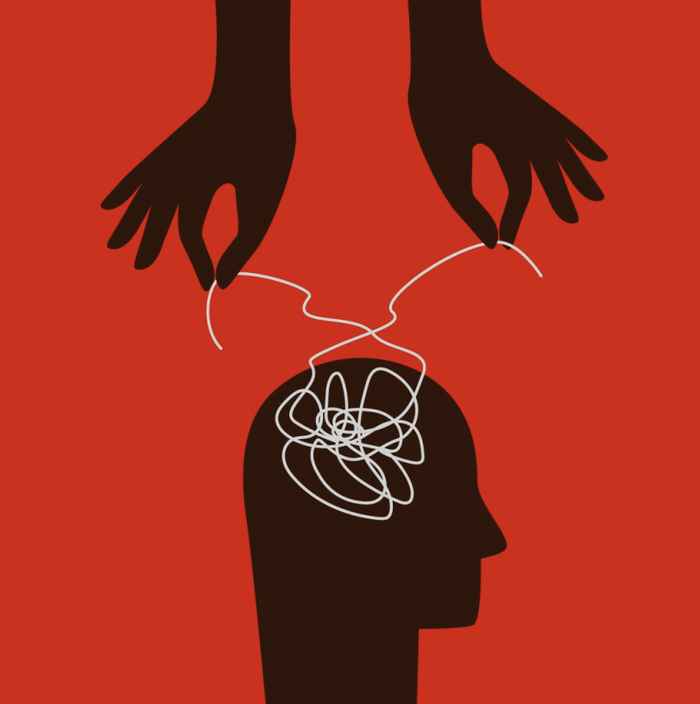The mind is under attack by states
Amsterdam Law School
14 August 2025

What is cognitive manipulation?
‘In straightforward terms, it is the manipulation of information designed to shape someone’s opinion or behaviour. It aims to interfere with someone’s opinion, without them realizing that they are being misled.’
What might that look like?
‘In my research, I focus on influencing through disinformation and propaganda from states, not companies or advertisers. Sometimes it’s sheer open propaganda, but often it’s more subtle. A clear example is what happened in the COVID pandemic. We know states spread contradictory information through mass media about the virus being created in a laboratory and the vaccines taking control of the mind. Another example is the 2016 election interference in the United States when Russia produced propaganda and disinformation to influence voters. These were then spread to falsely accuse politicians in the elections, undermining their campaigns. These types of manipulations are going on constantly.’
The point is to weaken the other state with propaganda, stir up problems in their society and change people’s mindset
Why are we facing this type of propaganda from other states?
‘We’re still talking about political and ideological clashes between states. This is mostly between Western and Eastern powers. They compete on both ideological and economic levels. The point is to weaken the other state with propaganda, stir up problems in their society and change people’s mindset. For example, by focusing on hot-button issues like migration to polarize society. Technically, it’s a clash between states, but it happens through manipulating the minds of individuals. People are caught in the middle of the fight between states. If you can successfully influence individual voting behaviour, you can change the position of a state.’
Why is manipulation especially dangerous when it comes from foreign states?
‘My point is that a state has political and military resources at their disposal. The individual has an inherently vulnerable position. There is an asymmetrical power dynamic against a state. I believe it’s far more serious and dangerous because of the political and ideological nature of the clash. Being persuaded to buy something on Amazon is a completely different ball game than altering the political structure of your country through voter manipulation. Moreover, big tech companies are subject to laws. What about states? Is there any legal framework that could set a boundary? I took a close look at international human rights law to see if states are bound by human rights norms when attempting to influence the population of another state.’

Károly Végh will defend his PhD dissertation entitled ‘In Defence of the Informed Mind - The applicability of international human rights law for the conduct of extraterritorial influence operations by States’ on 10 September. He is an external junior researcher at the Amsterdam Center for International Law (ACIL) and works as a practicing legal advisor.
Can human rights law protect us from disinformation?
‘In short, yes, it has all the potentials. The human rights norms and the protection of the free and informed mind are there. Yet, there is always a “but”. Many of the concepts in human rights law date from the 1960s. The norms and structures are there, and I think they are sufficient. However, they must be placed in the context of the 21st century. The freedom of thought is already a fundamental human right. But currently, there is zero case law on how someone’s mind is being manipulated through technology. There is still a lot of work to be done to bring these human rights concepts to the 21st century. This is what I did in my research: I took the existing norms, and I explained how they could look like to be able to respond effectively to ‘influencing’ in today’s political and technological developments.’
Are we subjected to more manipulation than before?
‘Probably. Because of technology, it is much easier to spread misinformation and reach a big audience through mass social media. Over 60 percent of the world has active access to the internet. I believe manipulation by other states has become much more frequent. A common belief is that ideas are inside your head, so they cannot be manipulated. Nobody can touch them. But in practice, technology is making it possible to read our thoughts before we have even expressed them. From a historical point of view, we are still at the beginning of the information era. We need to review our rules and regulations quickly and provide a new interpretation of the freedom of thought, opinion or privacy. If we don’t, technology will erode our human rights.’

We have a growing responsibility to keep ourselves informed, not influenced
Ultimately, is having a critical mind not the best way to defend yourself from being manipulated?
‘Absolutely. We as individuals have a growing responsibility to keep ourselves informed, not influenced. The fact that we have information about everything made that more difficult. The individual must remain informed and recognize when they are being manipulated. It doesn’t take away anything from the states’ responsibility. But I do think the best defence for the individual is to be trained in recognizing manipulation. We need to learn how to live in a digitized and mediatized society.’
How do we do that?
‘It is important to double-check your information and learn how to confirm or debunk news and information. Typically, people get their information about the world from one source. We like to consult sources that confirm our biases. Those biases are being taken advantage of by states because they easily find a path to get into your head. Overcoming our own biases is a hard task, but it can help us avoid being swayed by propaganda. It gives us a fuller picture. It forces us to think, not just absorb.’
Will we be able to prevent manipulation from hostile states?
‘I see positive developments. For example, several countries were held accountable under human rights law for collecting mass data about individuals, violating their privacy. That’s an important step forward, but we are far from the end of the road. I believe that international human rights law has a role in holding states accountable for information manipulation. States are constantly influencing us. I firmly see that it is part of our everyday now. But we shouldn’t panic. We need to acknowledge that there are constant attempts of manipulation. Whenever we try to formulate our view of the world, or our smaller society, keep in mind to be critical of your source of information – even in peacetime.’